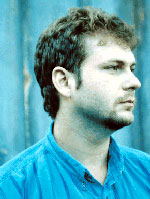The dynamic of battles between clockmakers and astronomers, and beyond this, the twists and turns introduced by the both arbitrary and capricious, yet bureaucratic and obstinate Board of Longitude are presented with great wit by Sobel, with our self-taught clockmaker protagonist, John Harrison showing tremendous brilliance and tenacity in the face of adversity after adversity.
A well written, well-researched, and extremely well-presented tale, if with odd continuity from chapter to chapter - I highly recommend it to anyone with an interest in science. Sobel spins an excellent tale, against a richly woven tapestry featuring many other great figures in 18th-century history, such as Astronomers Royal John Flamsteed, Edmond Halley, and Nevil Maskelyne, Captains Cook and Bligh, King George III and many others.
As fast as I read, the stack grows faster... Currently on the stack are re-reading Gödel, Escher, Bach, by Douglas R. Hofstadter, Drawing the Line: Tales of Maps and Cartocontroversy, by Mark Monmonier, I have Tales of the Dervishes by Idries Shah, Metamagical Themas (another Hofstadter book), The Geographer at Work, Mental Maps and a few others from my late Penn State professor Peter Gould and quite a few others working their way to the top of the stack...
astronomy, author, authors, book, books, cartography, chronometers, clock, clocks, exploration, geo, geodesy, geodetic, Geospatial, history, map, mapping, maps, navigation, science, space, technology, temporal, time






